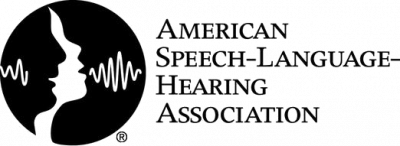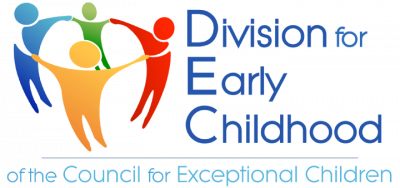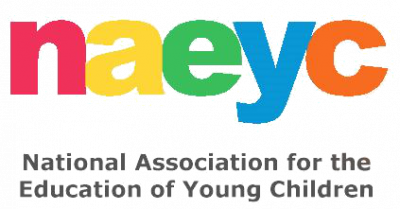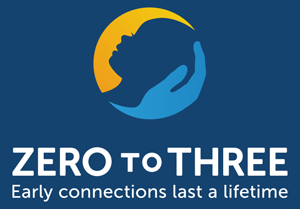Cross-Disciplinary Competencies
Over the past few years, seven national organizations representing disciplines providing services in early childhood have been participating in the alignment of personnel standards: the American Occupational Therapy Association (AOTA); the American Physical Therapy Association (APTA); the American Speech-Language-Hearing Association (ASHA); the Council of Exceptional Children (CEC) and the Division for Early Childhood (DEC), the National Association for the Education of Young Children (NAEYC); and ZERO TO THREE. Links to these organizations are provided below.
Each of these organizations provided the most recent description(s) of their personnel standards or competency areas (specific to their discipline) to the ECPC. A comparison was done across each of these documents to identify common areas of competence across all disciplines. The organizations agreed upon four common core areas of competence:
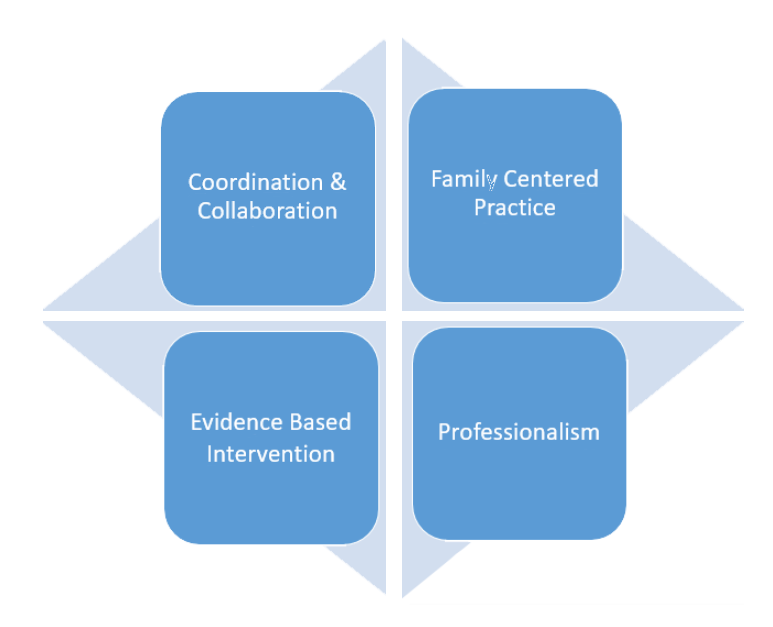
Representatives from each of the seven professional organizations reviewed the competency areas and sub-areas and presented these core competency areas for approval to each of their respective organizations.
The ECPC will create guides and exemplars of practice to demonstrate the core cross-disciplinary competency areas for use by professional organizations, Institutions of Higher Education, and State Systems of Early Childhood Personnel Development.
The Cross-Disciplinary Competency Areas, Definitions, and Indicators are laid out in this table: Cross Disciplinary Competency Areas and Indicators
Cross-Disciplinary Alignment Methodology
The Development of Core Cross-Disciplinary Early Childhood Competency Areas
Applying Cross-Disciplinary Early Childhood Practice User Guide
The purpose of this guide is for the reader to enhance one’s early childhood knowledge and practices through the application of the identified core cross-disciplinary competencies. The intended users of the guide include educators, practitioners, students, and families. It can be used for state team training, professional development, and higher education.
Case studies illustrate the cross-disciplinary competencies and are for use by Higher Education faculty and Professional development staff.
Case Study Aiden - Coordination & Collaboration
Case Study Antonia - Family-Centered Practice
Case Study Robert - Evidence-Based Intervention
Case Study Maria - Professionalism
Paper published in the OT Practice Magazine - March 2019: Interprofessional Core Competencies to Enhance Occupational Therapy Services in Early Childhood Settings
Bruder, M. B., Catalino, T., Chiarello, L. A., Cox Mitchell, M., Deppe, J., Gundler, D., Kemp, P., LeMoine, S., Long, T., Muhlenhaupt, M., Prelock, P., Schefkind, S., Stayton, V., & Ziegler, D. (2019). Finding a common lens: Competencies across professional disciplines providing early childhood intervention. Infants & Young Children, 32(4),280-293.doi: 10.1097/IYC.0000000000000153
Office of Special Education and Rehabilitative Services Blog
Mary Beth Bruder: Improving Early Childhood Intervention
Sandra Schefkind: Voices from the Field
Participating National Organizations

